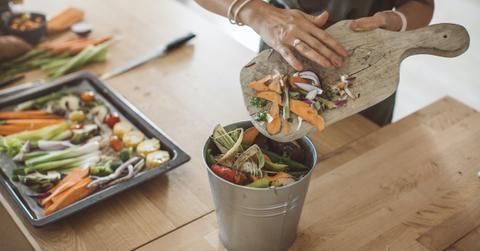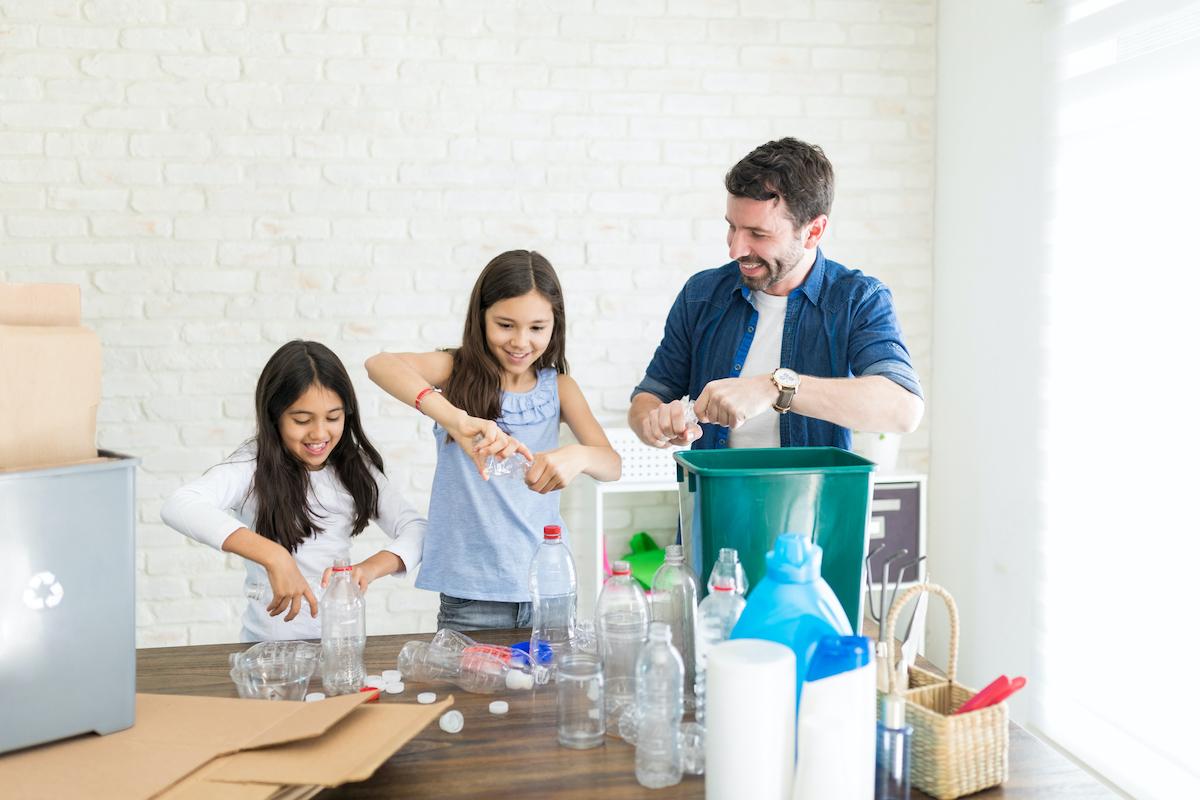Coronavirus Pandemic Has Inspired 64 Percent of Americans to Live More Sustainably, Survey Finds
Quarantine is inspiring Americans to pick up eco-friendly living habits.
Updated Nov. 1 2020, 11:59 a.m. ET

With people all across the U.S. spending more time at home during coronavirus quarantines, many Americans are rethinking their habits and trying to live more sustainably. According to a new survey, nearly two-thirds of people have been inspired to pick up more eco-friendly habits during the pandemic — and beyond.
The survey, conducted by OnePoll, surveyed 2,000 Americans to find out how COVID-19 has changed the way they think about living sustainably. According to press materials sent to Green Matters, 70 percent of those surveyed have become more aware of their eco-unfriendly habits while being home more during quarantine.
More specifically, 64 percent of respondents have had an "eco wake-up call," inspiring them to make various eco-friendly changes to their habits. For example, 55 percent of those surveyed said they are recycling more, 43 percent said they are using less paper products, and 44 percent are reducing their food waste.

Additionally, 66 percent of respondents said the pandemic has inspired them to think about the ways livestock are treated and if eating meat, dairy, and eggs is ethical, and 58 percent have cut back on the amount of meat they eat.
That makes sense, as COVID-19 is a zoonotic disease that was first transmitted from an animal to a human at a live animal market (aka a wet market) in Wuhan, China in late 2019 according to the World Health Organization (WHO).
Not to mention, the ways the U.S. government and meat corporations have handled slaughterhouse operations during the pandemic may have also given these surveyees some pause when it comes to purchasing and consuming animal products. President Trump declared slaughterhouses essential businesses, allowing them to stay open during the pandemic, despite the high coronavirus transmission rates at various major slaughterhouses, which put employees, farmers, and consumers at risk, as per the NRDC. For example, Smithfield’s South Dakota slaughterhouse is the biggest coronavirus hot spot in the country.
And with animal agriculture responsible for an estimated 18 percent of the planet’s human-caused GHG emissions, according to the Food and Agriculture Organization of the United Nations (FAO), Americans shifting their meat consumption habits during quarantine and beyond could have a huge impact.
But will these habit changes continue once quarantines are lifted and the world reopens? 81 percent of those surveyed said they plan to keep the eco-friendly habits they’ve picked up during the pandemic.
When offices around the country reopen, 42 percent of those surveyed said they plan to continue working from home one day per week to reduce the carbon footprint of their commute, 35 percent said they will take public transportation more frequently, and 37 percent said they plan to compost more often.

“Now, more than ever, we’ve been presented with an opportunity to reflect on and reassess our current way of living as a society, and help make strides towards adopting more thoughtful, sustainable habits,” said Mark Abrials, co-founder and CMO of Avocado Green Mattress, who commissioned the study. “Through this crisis, it has become undeniably apparent how connected our own health is to the health of our planet … We truly are all in this together, on a global scale, and even the smallest actions add up to create meaningful change.”
As states around the nation slowly begin to lift stay-at-home orders, it will certainly be interesting to see how consumers' newfound sustainable habits fit into the new society that we develop.
The best way to prevent contracting or spreading coronavirus is with thorough hand washing and social distancing. If you feel you may be experiencing symptoms of coronavirus, which include persistent cough (usually dry), fever, shortness of breath, and fatigue, please call your doctor before going to get tested. For comprehensive resources and updates, visit the CDC website. If you are experiencing anxiety about the virus, seek out mental health support from your provider or visit NAMI.org.